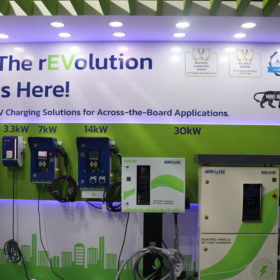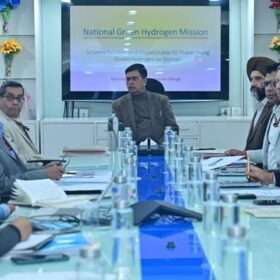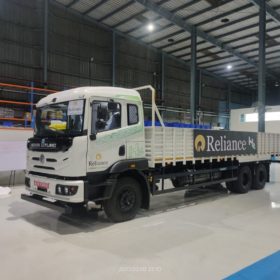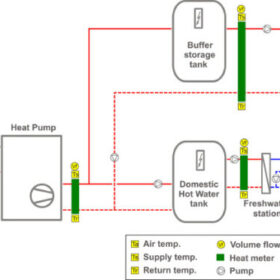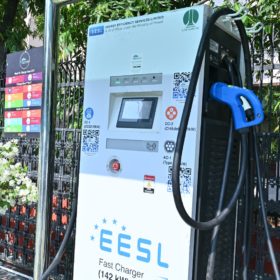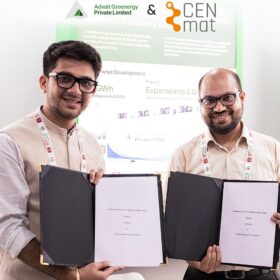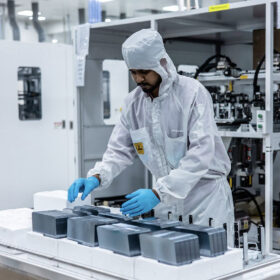Servotech Power Systems secures EV charger contract with Adani TotalEnergies E-Mobility
Servotech Power Systems has signed a contract with Adani TotalEnergies E-Mobility to manufacture, supply, install and provide maintenance of AC electric vehicle (EV) chargers at different Airports and other locations.
The Hydrogen Stream: India working on policy mechanism to promote use of green hydrogen for providing round-the-clock renewable energy
India’s Ministry of New and Renewable Energy is working on the modalities for promoting the use of green hydrogen in supporting round-the-clock electricity.
The Hydrogen Stream: Reliance Industries to convert existing 5,000 ICE trucks to run on green hydrogen by mid-2024
India’s Reliance Industries Ltd plans to convert around 5,000 existing internal combustion engine (ICE)-powered trucks into hydrogen ICE trucks by mid-2024. The company uses these trucks for its internal purposes.
Epsilon Advanced Materials completes acquisition of LFP Cathode Technology Center in Germany
Acquisition of the technology center in Germany expedites Epsilon Advanced Materials’s plans to establish a lithium-ion phosphate (LFP) cathode manufacturing plant in India, Asia’s first outside of China
How to combine residential heat pumps with PV, battery storage
New research from Germany’s Fraunhofer Institute for Solar Energy Systems (Fraunhofer ISE) has shown that combining rooftop PV systems with battery storage and heat pumps can improve heat pump efficiency while reducing reliance on grid electricity.
Budget expectations for solar, energy storage, and EV sectors
Dedicated funds for residential rooftop solar under ‘Pradhan Mantri Suryodaya Yojana’ and increased incentives for solar manufacturing MSMEs are on the wishlist of the Indian solar sector. In battery storage, players expect the inclusion of battery recycling within the PLI Scheme and continued investments in developing battery storage solutions.
Servotech secures 1,800 DC Fast EV chargers order from BPCL
Servotech Power Systems has secured the order to manufacture, supply, and deploy 1,800 DC Fast EV chargers primarily at Bharat Petroleum Corp. Ltd (BPCL) petrol pumps in major cities across the nation.
Bharat Mobility Global Expo to showcase EV battery, recycling, and charging infra innovations
Electric vehicle (EV) battery manufacturing, battery safety, and recycling along with EV charging and battery swapping are the key areas of discussion at the Bharat Mobility Global expo, scheduled from Feb. 1 –3, 2024, in New Delhi.
Agratas partners Tata Technologies to fast-track battery solutions for electric mobility, renewable energy storage
The collaboration with Tata Technologies will enable Agratas to accelerate product development, including the design and integration of battery cells into modules and packs for global customers in the mobility and energy sectors.
Govt tenders 10 GWh of battery cell manufacturing under PLI Scheme
India’s Ministry of Heavy Industries has invited global bids to set up a cumulative 10 GWh of giga-scale advanced chemistry cell (ACC) manufacturing facilities under production-linked incentives scheme. Bidding closes on April 22 and bids will be opened on April 23, 2024.
